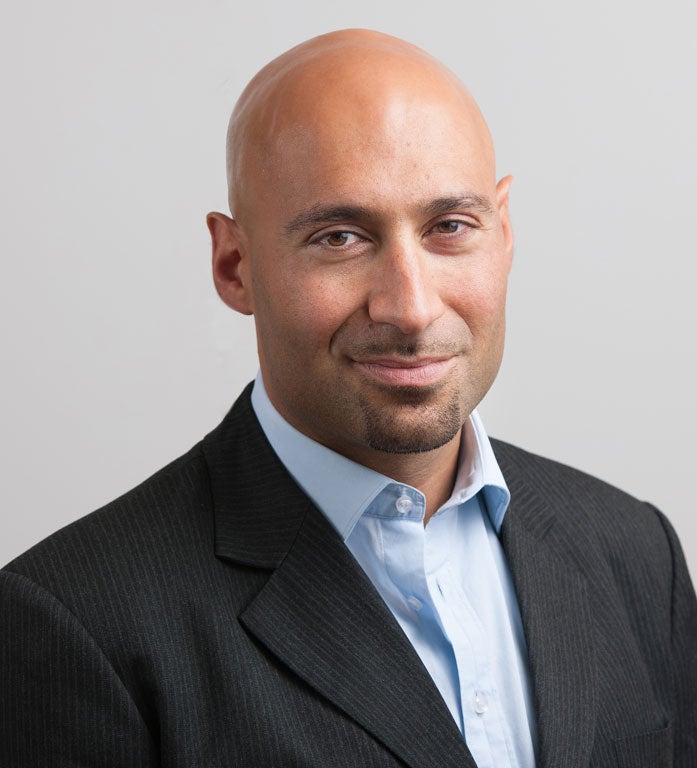MBA blog: Fairness IS efficient
Raphael Mokades reveals three big arguments for why organisations want diverse workforce

“Increasingly, many companies do see benefit in having a diverse workforce,” says Raphael Mokades, the founder and managing director of Rare, a diversity recruitment agency in London, which, as their slogan claims, “connects exceptional people from diverse backgrounds with great jobs in top organisations”.
Mokades graduated from Oxford University in 2001. He was in charge of diversity at Pearson plc from 2002 to 2005 and set up Rare in 2005. The business now works with some of the UK’s most prestigious companies, and has over 2,500 candidates on its books. Besides recruitment, Rare offers training, consultancy and development programmes. Their unconscious bias training and masterclasses on social mobility in graduate recruitment and managing cultural differences in the assessment process help companies create equal opportunities for candidates.
Mokades names three main reasons behind the need for a diverse workforce: talent, marketplace and consumer knowledge.
“If 50 per cent of the population is female, for example, but 80 per cent of your workforce is male, simple statistics would suggest that you're missing out on some very good women while probably employing some rather duff men.
“Put another way, if talent is evenly distributed between people from different social classes and ethnic backgrounds and genders, but you only employ posh white men, you're missing out on people who could be helping you to make more money,” he says.
Marketplace argument, on the other hand, means that many governments or big corporates want to see the diversity makeup of their suppliers - they won't use suppliers that aren't diverse.
“It's rather hard,” he explains, “to pitch a service to South African Railways with an all-white team. Firms that get a reputation for not being very diverse suffer because their customers, their employees and their competitors perceive them to be out-of-touch and behind the curve,” he adds.
And there's a direct consumer knowledge argument. Mokades mentions one of their clients, L'Oréal, world’s largest cosmetics and beauty company, and makes a simple yet strong point by saying that it would be hard to run Mizani, its black female haircare brand, without black women in the team.
His arguments are supported by numerous studies confirming the benefits of having a diverse workforce, such as having an improved corporate culture and corporate image, greater creativity, higher employee retention and increased productivity. One such study, done for Europe specifically, Cultural Diversity and Economic Performance: Evidence from European Regions, investigates the relationship between diversity and productivity in 12 EU countries, and found that diversity was being positively correlated with productivity.
There is no doubt that companies like Rare contribute to the process not only by educating on benefits of having a diverse workforce, but also by providing those for whom these benefits are obvious with exactly what they need.
One of Rare's clients is the Internet giant Google. Its head of diversity and inclusion for the EMEA region, Mark Palmer-Edgecumbe, confirms Rare's role in supporting Google's diversity recruiting efforts and adds: “It's important for Google to hire amazing talent from diverse backgrounds so that we can continue to develop innovative world leading products and services which meet the needs of the diverse communities we serve.”
“We see our job as being twofold,” Mokades concludes. “Firstly, we find and develop great talent, especially ethnic minority talent. And secondly, we help firms make their processes as fair and efficient as possible. I say 'fair and efficient' because fairness IS efficient - having the best possible people will give you the best possible chance of beating your competitors. And the way you get the best possible people is by giving people from different backgrounds an equal chance to succeed; a level playing field.”
Adela Papac is an MBA graduate from Westminster Business School. In her role of a Global AMBAssador for AMBA, Adela has been working on developing and supporting business practices which drive a sustained and positive social change and create socially responsible businesses.
Join our commenting forum
Join thought-provoking conversations, follow other Independent readers and see their replies
Comments
Bookmark popover
Removed from bookmarks